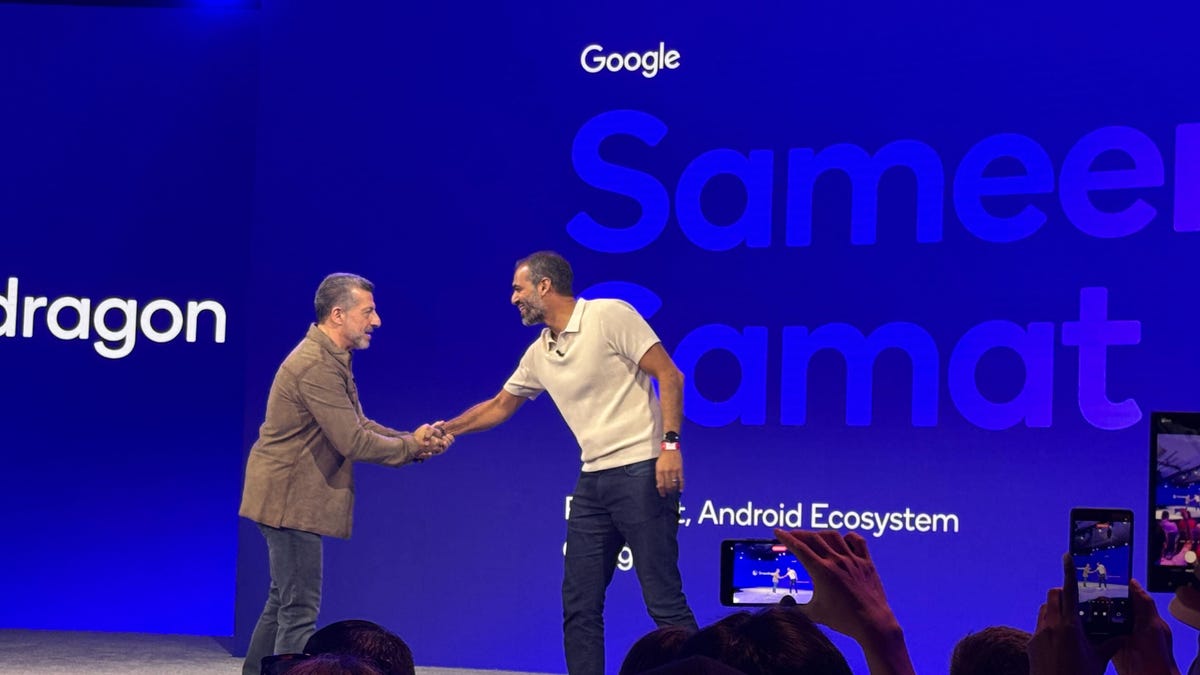Google to Merge ChromeOS with Android for AI‑Powered Large‑Screen Experience

Key Points
- Google will run Android as the baseline OS for ChromeOS devices.
- ChromeOS user experience remains unchanged while gaining Android’s capabilities.
- The integration aims to extend Gemini AI models and the Gemini assistant to PCs and large‑screen devices.
- Android chief Sameer Samat and SVP Rick Osterloh presented the plan at the Snapdragon Summit.
- Goal is to provide a seamless AI experience across phones, tablets, and computers.
- Google seeks to make Chromebooks more appealing to Android phone users.
Google announced plans to combine its ChromeOS laptop operating system with Android, creating a unified platform that runs Android at its core while retaining the ChromeOS experience. The move, highlighted at Qualcomm's Snapdragon Summit, aims to extend the company’s AI capabilities—particularly the Gemini models and the Gemini assistant—across PCs and large‑screen devices. Android chief Sameer Samat and SVP of Devices and Services Rick Osterloh explained that the integration will enable seamless AI functionality across phones, tablets, and computers, strengthening Google’s ecosystem and offering users a more consistent, AI‑driven experience.
Google Unveils ChromeOS‑Android Integration
At Qualcomm's Snapdragon Summit, Google detailed a strategic shift that will see its ChromeOS operating system for laptops and desktops run on Android as its baseline technology. While ChromeOS will remain as the user‑facing experience, the underlying platform will transition to Android, allowing the two ecosystems to operate as a single, cohesive whole.
Sameer Samat, head of Android, described the initiative as a way to bridge the long‑standing divide between mobile phones and PCs. By leveraging large‑screen compute, Google intends to let its AI services—particularly the Gemini models and the Gemini assistant—run seamlessly across all device categories. Samat emphasized that this integration represents a new era where AI can function uniformly on phones, tablets, and computers.
Technical Vision and Leadership
Rick Osterloh, Google’s senior vice president of Devices and Services, provided additional technical context. He explained that the combined platform will create a shared foundation for Google’s AI stack, enabling developers to bring Gemini‑powered applications to the PC domain. Osterloh highlighted that the move does not signal the end of ChromeOS; rather, it preserves the familiar ChromeOS interface while enriching it with Android’s extensive app ecosystem and AI capabilities.
Implications for Users and the Market
The integration is expected to benefit Android phone owners who upgrade to Chromebooks or other large‑screen devices, offering a consistent AI experience across their hardware. By unifying the operating systems, Google hopes to replicate the success of AI‑driven mobile experiences on its laptop platform, making Chromebooks more attractive to a broader audience.
Overall, the announcement signals Google’s commitment to deepening its AI integration across hardware categories, positioning the company to deliver a more seamless, intelligent user experience from smartphones to desktops.